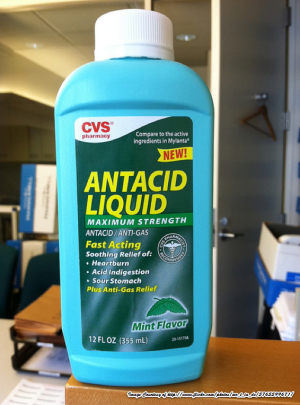Acid Reflux and Chinese Medicine
Acid reflux is a problem which we see in the clinic frequently and it responds very well to acupuncture and herbal therapy.
Gastrointestinal Reflux Disease (GIRD or GERD) occurs when stomach acid inappropriately flows backward into the esophagus. Many people will experience this occasionally. However, for about 25 to 35 percent of the people in the United States, this may become a chronic condition that can dramatically impact their enjoyment of life. The western medical treatment for GERD is to administer pharmaceuticals which either neutralize excessive stomach acid or decrease it's secretion. In the short term, this can be very useful and for occassional heartburn relatively safe. However, over the longer term side effects can become quite problematic. As an example, antacids are generally composed of calcium; aluminum hydroxide; sodium compounds and/or magnesium hydroxide. Side effects from these compounds may include:
- Carbonate: regular high doses may cause alkalosis, which in turn may result in altered excretion of other drugs, and kidney stones. A chemical reaction between the carbonate and hydrochloric acid may produce carbon dioxide gas. This causes gastric distension which may not be well tolerated. Carbon dioxide formation can also lead to headaches and decreased muscle flexibility.
- Aluminum hydroxide: may lead to the formation of insoluble aluminium-phosphate-complexes, with a risk for hypophosphatemia and osteomalacia. Although aluminium has a low gastrointestinal absorption, accumulation may occur in the presence of renal insufficiency. Aluminium-containing drugs may cause constipation.
- Magnesium hydroxide: has laxative properties. Magnesium may accumulate in patients with renal failure leading to hypermagnesemia, with cardiovascular and neurological complications. See Milk of magnesia.
- Sodium: increased intake of sodium may be deleterious for arterial hypertension, heart failure and many renal diseases.

For the proton pump class of drugs, including Nexium, Prilosec, Aciphex, Protonix and several others, acute side effects may include:
- Constipation
- Diarrhoea
- Flatulence
- Headaches
- Nausea
- Abdominal pain
- Vomiting
- Rarely, breast enlargement in men and anemia.
Perhaps more concerning is the long term use of these drugs may potentially lead to more signficiant problems including an increased likelihood of infections, nutritional deficiencies and a greater propensity toward dementia.
Acupuncture in the treatment of Acid Reflux:
Acupuncture and Chinese herbology are extremely useful in both managing and effectively treating acid reflux, frequently eliminating it altogether. As in so many situations like this one, an acupuncturist will evaluate the patient on basis of how their body manifests both the disease as well as other health markers. From this evaluation we create a treatment which is tailored to the individual. It is this tailoring which makes for such an effective treatment.
Research/Articles
- A recent Japanese article found that acupuncture was extremely effective in eliminating many of the causes of reflux and GERD. The study, which can be read here, found that,
... acupuncture relieves digestive impairment due to stress. This finding suggests that acupuncture is an effective modality for the treatment of functional dyspepsia (indigestion). Dyspepsia usually involves pain of the upper abdomen, bloating and sometimes nausea, heartburn and belching. Dyspepsia is also linked to GERD, gastroesophageal reflux disease.
- An NIH funded study, published in the journal, Aliment Pharmacol Therapy, demonstrated that acupuncture was more effective than doubling the proton pump dose in the patient population studied.
- The American Journal of Physiology-Gastrointestinal and Liver Physiology published a study in which it was demonstrated that acupuncture decreased the stomach sphincter relaxation, which leads to reflux by 40%.
- An interesting research study which demonstrates that GIRD/GERD and chronic sinusitis will often coexist in the same patient. Chinese medicine has long posited the same relationship and we frequently see that in our patients who have one of these problems experience an improvement in the second simultaneously.
- A recent study published in Alimentary Pharmacology & Therapeutics (and which can be read here):
. . . concludes that acupuncture is effective in the treatment of dyspepsia.
Researchers examined a total sample size of 712 patients. They were randomly assigned to 6 groups. Group 1 received specific acupuncture points on the stomach (Leg Yangming) meridian. Group 2 received non-specific acupoints on the stomach meridian. Group 3 received acupuncture on alarm points and transport points. Group 4 received acupuncture on the gallbladder (Leg Shaoyang) meridan. Group 5 received sham acupuncture, which uses acupuncture needles applied to non-acupuncture points. Group 6 was administered itopride. Itopride is a drug made for the treatment of dyspepsia and many gastrointestinal disorders. It is a prokinetic benzamide.Patients received 5 acupuncture treatments per week for a period of 4 weeks. Follow-up was documented 12 weeks following the treatment period. All groups improved, however, Group 1 had over a 70 percent success rate. Group 1 received specific acupuncture points on the stomach meridian. The group with the lowest success rate was the sham acupuncture group with only a 34.75 percent improvement. The researchers concluded, “Acupuncture is effective in the treatment of functional dyspepsia, and is superior to non-acupoint puncture. The benefit of acupuncture relies on acupoint specificity.”